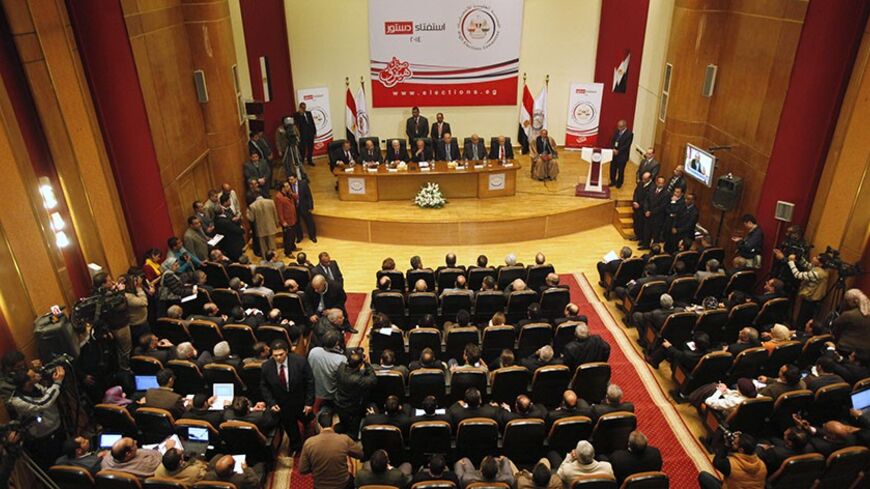As the dust begins to settle after Egypt’s third constitutional referendum in three years, this time passing what are officially constitutional amendments but in reality is a brand new constitution, two broad narratives are emerging. The first narrative, predominantly local, positively presents the totality of everything that is taking place in regard to the vote and the country, a triumph for the goal of real democracy and the values of modernism. The second narrative proclaims the death of democracy and the end of everything that has to do with the January 25 Revolution and its lofty goals. The reality, one leans to believe, is more complex and multilayered. It is also still developing, most obviously.
Let's start with some basic facts and figures. Official overall voter turnout in the 2012 parliamentary elections stood at 54%, while voter turnout for the 2012 presidential elections was 46.4% in the first round and 52% in the second. The 2011 constitutional referendum, which came at the height of post-revolution national enthusiasm, witnessed a turnout of just over 41%. Most importantly and tellingly, at the time of the 2012 constitutional referendum — which saw a large-scale mobilization on both sides of the political fray and heated campaigns in favor of and against the charter — the total turnout only reached just over 32%, with 36% of voters casting a "no" vote. In the 2014 referendum, official voter turnout figures stood at 38.6% (thus somewhat higher than the 2012 referendum turnout), which culminated into what was simultaneously an odd sounding and resounding support percentage of 98.1%.



